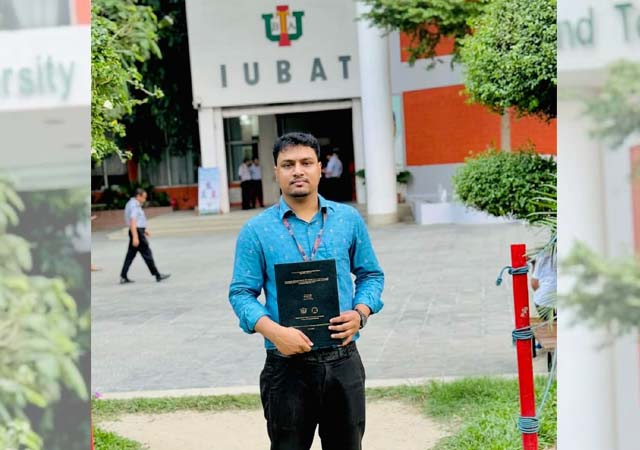

Sultanul Arefin
Graduate – Department of Languages
IUBAT -International University of Business Agriculture and Technology.Dhaka Bangladesh
In today’s globalized world, English proficiency has become a valuable asset, not just in communication but also in enhancing job opportunities and access to knowledge. Teaching English to Speakers of Other Languages (TESOL) plays a critical role in this process. However, implementing TESOL programs successfully in non-English-speaking countries such as Bangladesh requires a delicate balance between global standards and local needs. This article explores how TESOL training can be adapted to Bangladesh's unique context while maintaining international best practices.
Global TESOL Standards: TESOL training has universal guidelines that focus on key elements such as language acquisition theories, teaching methodologies, classroom management, and lesson planning. These frameworks emphasize communicative language teaching (CLT), student-centered learning, and task-based language instruction, which promote an interactive and engaging learning environment. The goal of global TESOL standards is to create learners who can confidently use English in real-world situations, fostering not just academic growth but also social and professional competencies.
Challenges in the Bangladeshi Context: The challenge, however, lies in aligning these global standards with the realities of Bangladesh’s educational infrastructure. Bangladesh is a country with a rich cultural and linguistic history, where Bengali remains the dominant language. In rural areas especially, English is often viewed as a foreign, academic subject rather than a practical tool for communication. Moreover, classrooms in Bangladesh can be overcrowded, and access to technological resources like computers, internet, or audiovisual aids can be limited, especially outside major cities.
Teacher preparedness is another issue. Many English teachers in Bangladesh lack formal TESOL certification or adequate training in modern pedagogical methods. As a result, the traditional grammar-translation method—where students memorize rules and vocabulary—remains prevalent. This method can hinder the development of spoken and practical language skills that are emphasized in global TESOL frameworks.
The Need for Local Adaptation: To bridge this gap between global TESOL standards and the local Bangladeshi context, several adaptations must be made. First, the training of TESOL educators should include cultural competence, which encourages teachers to be aware of their students' socio-cultural backgrounds and adapt lesson plans accordingly. For instance, using local stories, examples, and familiar contexts can make English learning more relatable and engaging for students.
Additionally, given the large class sizes and limited resources, TESOL training in Bangladesh should emphasize resourceful teaching strategies. For example, teachers can utilize group work or peer learning to engage more students simultaneously. Low-cost teaching aids, such as flashcards or printed materials, can replace the need for expensive technology in under-resourced areas.
Hybrid Teaching Models: Another area of adaptation is the integration of hybrid teaching models that combine traditional and digital methods. While Bangladesh may have limited access to technology in some regions, the increasing availability of mobile phones and internet connectivity offers an opportunity for incorporating e-learning components into TESOL programs. Teachers can be trained to use free or low-cost online resources, apps, and even social media platforms to supplement classroom learning. This can enhance students’ exposure to English outside the traditional learning environment and provide them with additional practice in listening, reading, and speaking.
Context-Specific Curriculum: The curriculum for TESOL in Bangladesh should also be tailored to the needs of different learner groups. For younger learners, the focus could be more on building foundational skills through interactive and play-based learning. For older students, especially those pursuing higher education or employment, a functional approach that focuses on the use of English in academic and workplace settings would be more appropriate.
Vocational English, or English for Specific Purposes (ESP), is another area where TESOL training in Bangladesh can be adapted to meet local needs. With Bangladesh’s growing economy and industries such as textiles, IT, and customer service sectors, learners may benefit more from TESOL programs that equip them with industry-specific English language skills.
Teacher Development and Support: Effective TESOL training in Bangladesh must also include continuous professional development for teachers. Regular workshops, peer reviews, and mentoring programs can help teachers stay updated on the latest teaching methods, share best practices, and adapt to changing classroom dynamics. By fostering a supportive community of TESOL educators, both experienced and novice teachers can improve their teaching effectiveness.
Finally, TESOL training in Bangladesh offers immense potential to enhance English proficiency among students, opening doors to global opportunities. However, to maximize its effectiveness, TESOL programs must be thoughtfully adapted to the local context, considering cultural, infrastructural, and economic realities. A balanced approach that integrates global standards with localized methods can help create a more inclusive and practical English learning environment in Bangladesh. This, in turn, will contribute to the country's educational growth and its positioning in the global community.
